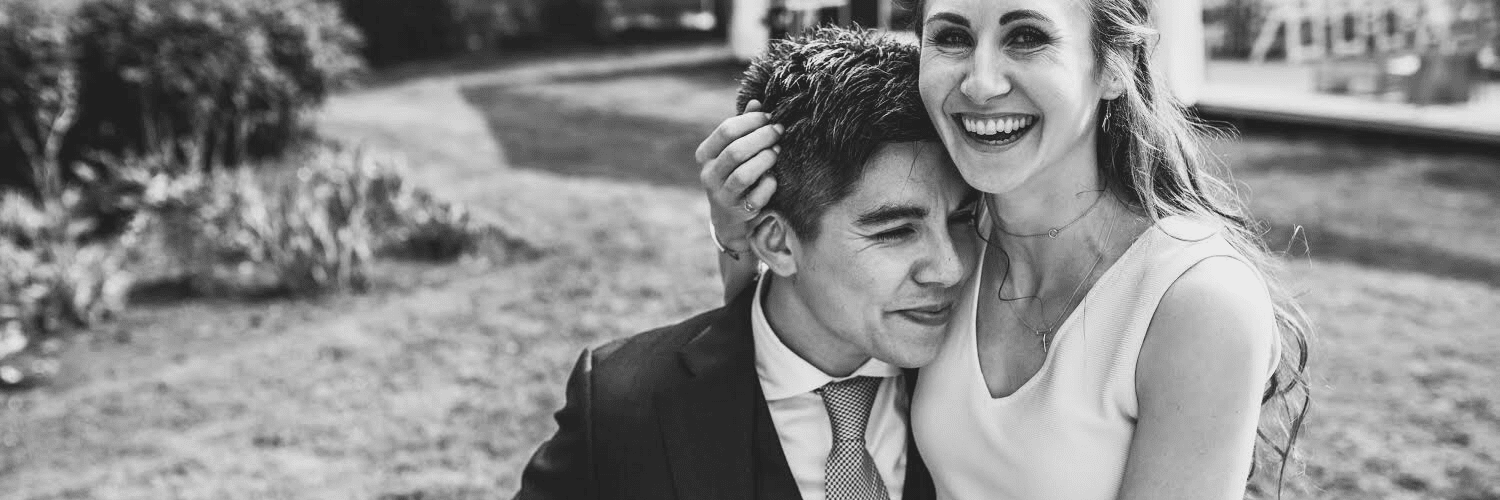“British payments start-up GoCardless has raised $75m from major tech investors, including Alphabet and Salesforce, to fund its global expansion. The funding, which comes less than three years after its co-founder Hiroki Takeuchi was paralysed from the chest down, will help it launch in the US and Spain later this year.”
Please listen to the Podcast: Married, Paralyzed and Moving On
WNYCSTUDIOS, November 20, 2018
Two years ago, Hiroki Takeuchi was paralyzed from the waist down in a cycling accident. It was just weeks after he and his wife, Rachel Swidenbank, got married. When we first spoke in early 2017, Hiroki was still figuring out the basics of day-to-day life in a wheelchair: how to drive an adapted car, how to get up and down stairs, how to use the bathroom on his own. Rachel stopped working to care for Hiroki in those early days. There were a lot of unknowns about the future, and what Hiroki’s body would and wouldn’t be capable of.
When we spoke recently, they told me that Hiroki is now fully independent when it comes to his daily routines, and that they’re both back to work. “It’s been progress, progress, progress, progress,” Rachel said. “And then like maybe the last three, four months it’s kind of flattened out in terms of what you would classify as progress.” One thing that they haven’t yet fully figured out: sex. “We definitely have a lot of intimacy and you know, a lot of closeness,” Hiroki told me. “But…I think that there’s so much baggage around it.”
Rachel and Hiroki did recently find out that having a child together is possible via IVF. While they’re not ready to start that process quite yet, it was exciting news for them—and it’s made Hiroki think about what being a father might look like for him. “One of the things that really worried me was that I wouldn’t be able to be a proper dad to our children,” he said. “I think there’s a level of like you know redefining what fatherhood means through a different lens. It doesn’t mean it’s worse, it’s just different.”
NOW READ A RECENT NEWS OF $75m FUNDING
GOCARDLESS | Blog
February 18, 2019

Hiroki Takeuchi in Announcements
Announcing our $75m funding round to open up access to our global bank debit network
We’re incredibly excited to announce a new investment round of $75 million, led by new investors Adams Street Partners, GV (formerly Google Ventures) and Salesforce Ventures, as well as existing investors: Accel, Balderton Capital, Notion Capital and Passion Capital.
This Series E investment takes the total amount we’ve raised to $123 million and enables us to take the next steps on our mission to take the pain out of getting paid, so businesses can focus on what they do best.
A broken payments landscape
Over the last 10 years, we’ve seen the rise of the subscription economy and the boom of the business services sector.
We’ve seen more and more businesses develop long term relationships with customers, through subscription and instalment plans and through professional services agreements and retainers.
We estimate that around 18% of global payments are now recurring.
But while business models have moved on: payments haven’t.
PLEASE ALSO READ
“Why I’ll never regret giving up my business to care for my husband”
Rachel Swidenbank’s husband, Hiroki Takeuchi, was left paralysed from the chest down after being involved in a bike accident just three weeks after their wedding. Here, she tells stylist.co.uk how she gave up her company to help care for him – and why she has absolutely no regrets.
SARAH BIDDLECOMBE
Stylist
August, 2018
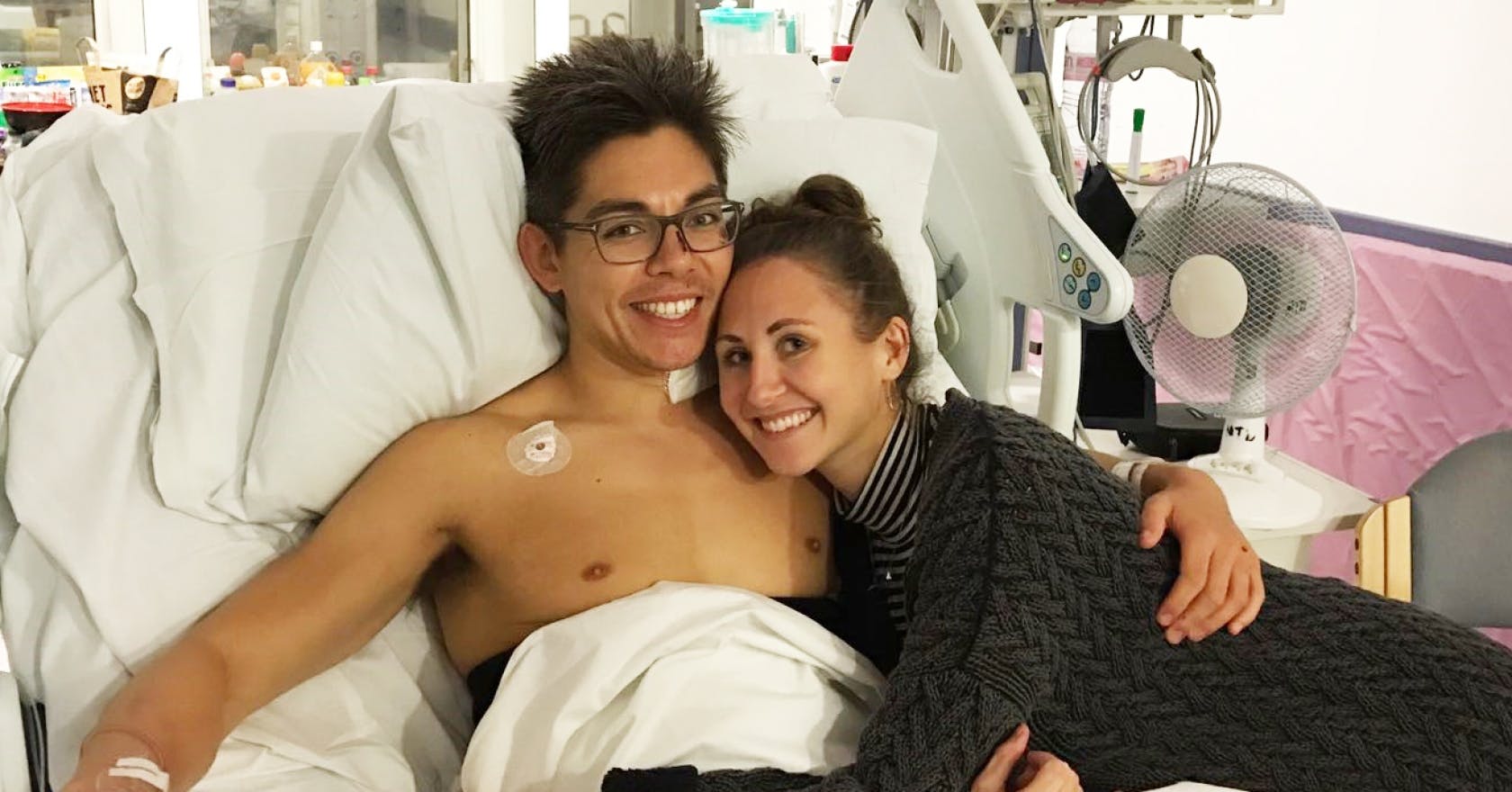
Rachel spent five weeks sleeping on a blow up mattress beside Hiroki’s bed
“Why I’ll never regret giving up my business to care for my husband”
I met Hiroki on my first day at university in 2005, and I liked him straight away. We started seeing each other a couple of days later and by Christmas he had asked me to be his girlfriend. We’d been together for about nine years when Hiroki proposed while we were on holiday in Hong Kong, and we got married in August 2016.
Hiroki has always been very spontaneous, and before the accident we felt really free as a couple. We would go on spur-of-the-moment weekends away where we wouldn’t have a hotel booked; we’d just turn up and see what we could find. We had both worked really hard at University and then had tough careers, as management consultants and then running our own companies, so our life was a balance between hard work, seeing friends and travelling.
I remember the morning of the crash quite clearly. I was getting up to go to the gym and Hiroki was going to meet his brother for a cycle around Regent’s Park, and I gave him a hug in the hallway. It was just a nice moment where we had a hug and said bye, and I didn’t think anything of it. But when I checked my phone after getting out of the shower in the gym I saw I had two missed calls from his brother. I messaged him to ask if everything was OK and he rang me straight back and said that Hiroki had had an accident, and I needed to go to the hospital.
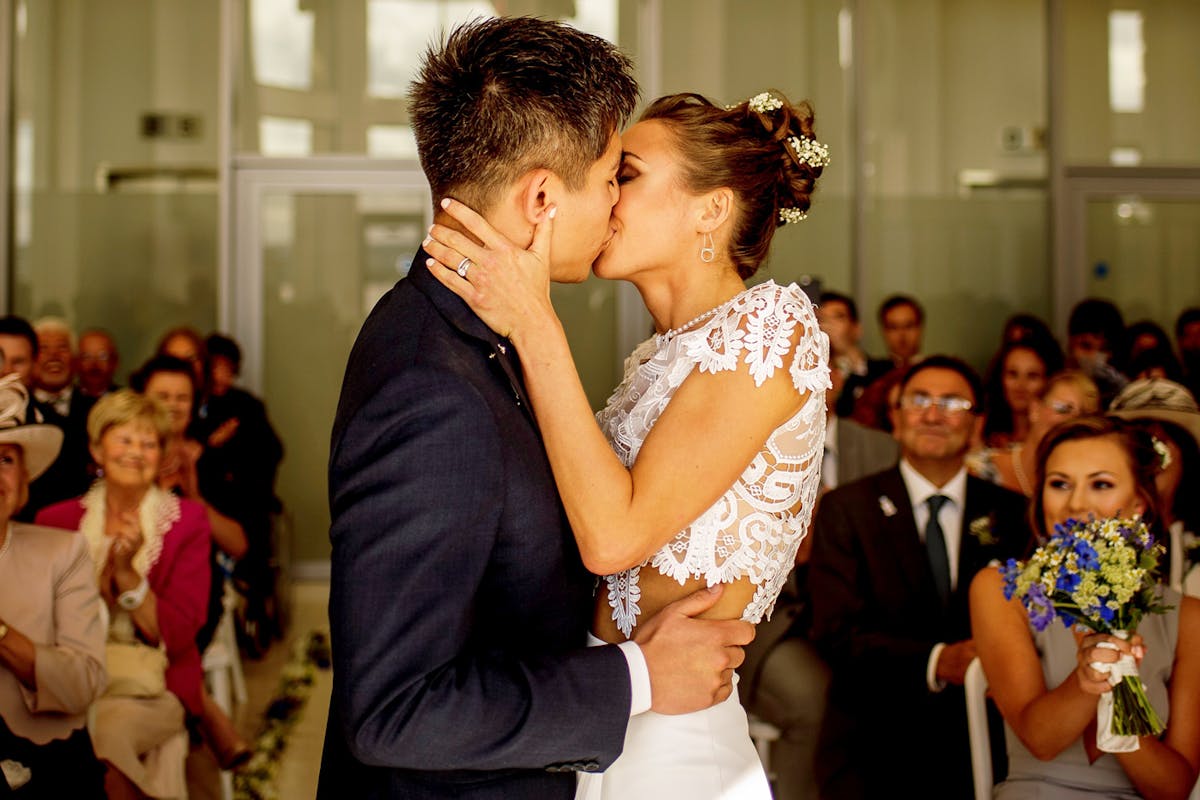
The couple on their wedding day, just three weeks before Hiroki was left paralysed
I was in a bit of a state; I pulled my clothes on and jumped into a cab. I got to A&E and the staff took me through to an area where there were a couple of police officers and his brother. Hiroki had been in another cycle accident a couple of months earlier where he had just broken a couple of ribs, so I wasn’t sure what to expect. But then I saw a sign that read ‘major trauma’ and I thought, oh s**t, this is really serious.
They told me that a neurosurgeon was going to come and talk to me and that’s when I knew it was going to be really bad. It took about two hours for the doctors to get him stable and then they let me in to see him. He had all this cushioning around his head and his neck, and he had an oxygen mask on his face. His eyes were open but his whole face was swollen and he just looked at me and said, ‘Rachel, I’m so sorry’. I told him not to be stupid, and then our surgeon came over to talk to us.
“It was crazy; we both went into this weird, already-living-in-a-wheelchair moment.
I think it was the shock”
Our surgeon told us that he had crushed his spinal cord, and that he was never going to walk again. It was crazy; we both went into this weird, already-living-in-a-wheelchair moment. We were talking about how we were about to get our kitchen done and needed to make sure it would be OK for him in his wheelchair, and I was saying, ‘I’ll go and call them straight after this’. I think it was the shock.
Hiroki had an eight hour operation to stabilise his spine and get the bones back in place. His brother and I walked him into surgery and then just stood there hugging and crying for a few minutes. After that, I pretty much moved into the hospital with him – they don’t normally let people stay but I think everyone’s hearts went out to us because we were such a newly married couple, and I was adamant that I wasn’t leaving him. I had a blow up mattress on the floor by his bed and it made such a big difference; the nurses had so much to do and so many severely injured patients to look after, so if Hiroki needed anything, I could be there for him.
I continued going to work during the day as I was running my own company; an online marketplace for home cooked food, called Cookoo. We were on our second round of funding so I was still meeting with investors and trying to raise money; it was a bit of a struggle but it was probably a healthy distraction. We didn’t raise enough money in the time that we needed to and, although we could have carried on, I knew that Hiroki would need a lot of support when he came out of hospital, and I really wanted to be there for him.
Even now, it’s one of the hardest things I’ve ever done. I had watched Hiroki grow his own company (GoCardless) so this was something that felt like it was mine, and I was really passionate about it. It motivated me every day, so it was a really tough decision to make. But ultimately I knew I could always start another company, but I would never be able to go back and be there for Hiroki again, so it was the right decision.
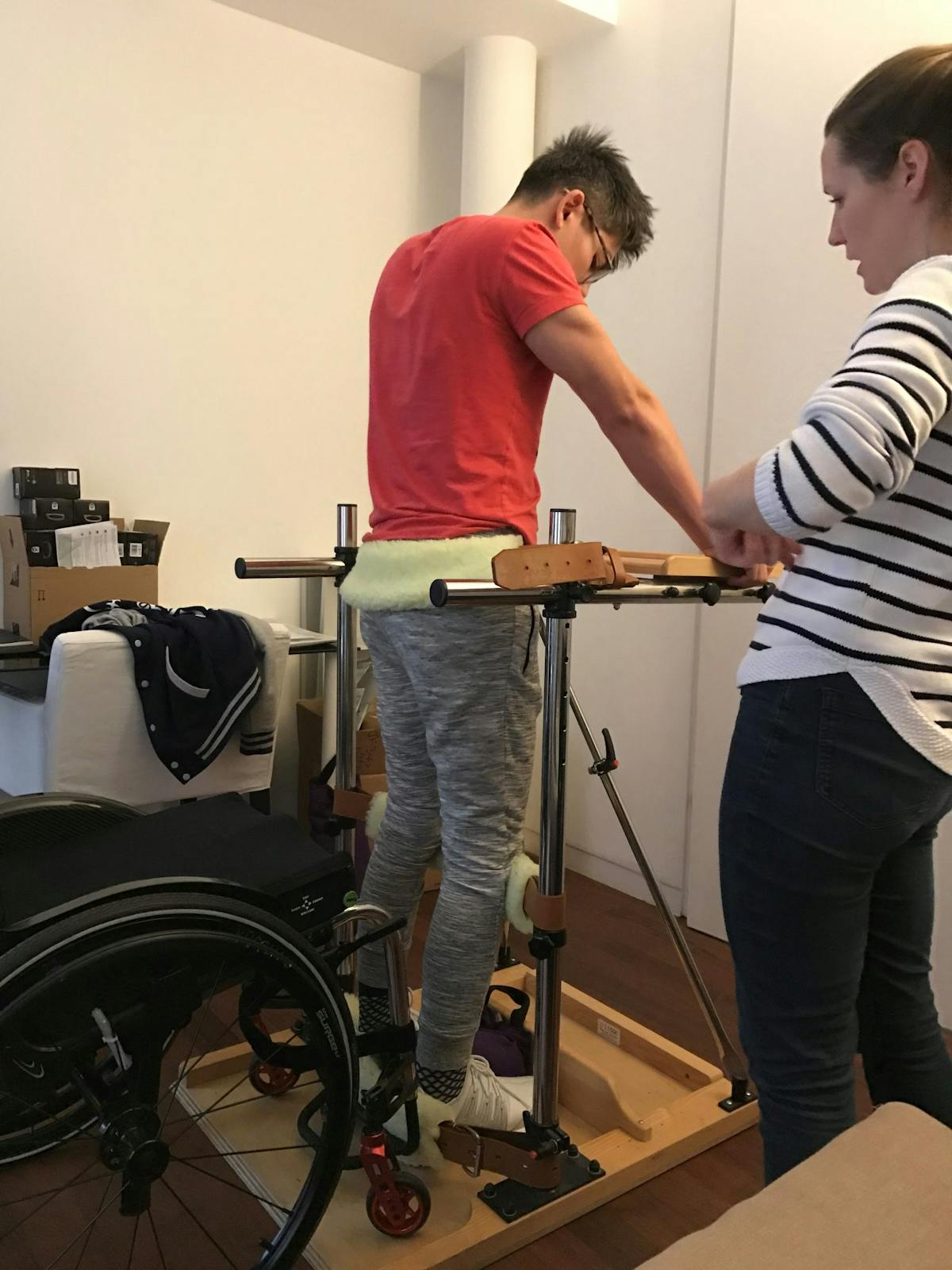
Hiroki using a standing frame, which helps keep his bone density and flexibility in his legs
Hiroki is a very ambitious and determined person, so when they told him he would need to stay in rehab for at least three months, he decided that he would be out of there in half the time – and in just under seven weeks, he was. I think that says a lot about him. He had a complete spinal cord injury, meaning that he can’t feel or move anything below his chest.
He came back home in December and we were adamant that we wanted to have a normal Christmas together, so we went up North to visit my parents. It was a real struggle trying to get into a house that wasn’t accessible, especially so early on when his body hadn’t recovered from everything that had happened. We really pushed ourselves in the early days; we even decided to go on holiday to Oman in April, just six months after the accident. We laugh at that in hindsight now – why did we think it was a good idea?! But I think we were trying to prove to ourselves that we could still enjoy the same freedom.
“There are so many amazing ways that society caters to a disability like this, but we can’t be free and flexible and that’s a challenge”
Ultimately, I think that’s been one of the hardest things about this – we’ve lost our freedom. If we turn up to a train station spontaneously we get refused by the support and mobility people, because we have to book train travel in advance. Even if we go to a museum that has disabled parking, we’ll still be told we have to book our visit 24 hours in advance – even if the museum is empty!
There are so many amazing ways that society caters to a disability like this, but we can’t be free and flexible and that’s a challenge. We’re always so dependent on support; we need assistance getting on and off a plane when we go on holiday, for example. We used to be those people who would jump up and try to get off the plane as quickly as possible when it landed but now we get stuck waiting in our seats for mobility assistance. We used to get really agitated by it but now we make sure we have good books and we just sit and chill.

The couple at a friend’s wedding
One of our recent trips was to Tokyo; Hiroki is half Japanese and he loves Japan. But it was challenging because almost every restaurant had steps to get in and out, which was difficult. But people do offer to help, and sometimes he’ll get carried up or down stairs.
The accident was nearly two years ago and now Hiroki needs pretty much zero help from me. When he first came out of hospital he had very little mobility so I would have to help him use the bathroom, or clean up after him, or help him turn in bed. I did a lot of things for him in those early days. But now he’s completely independent; I went on holiday with my sister for her hen do last week and he was completely fine. Hiroki travels with work frequently and completely independently. The last time he asked me to do something for him was this morning when he couldn’t reach something on the top shelf. It’s just occasional things, and no different to the duty of care any wife might have for her husband.
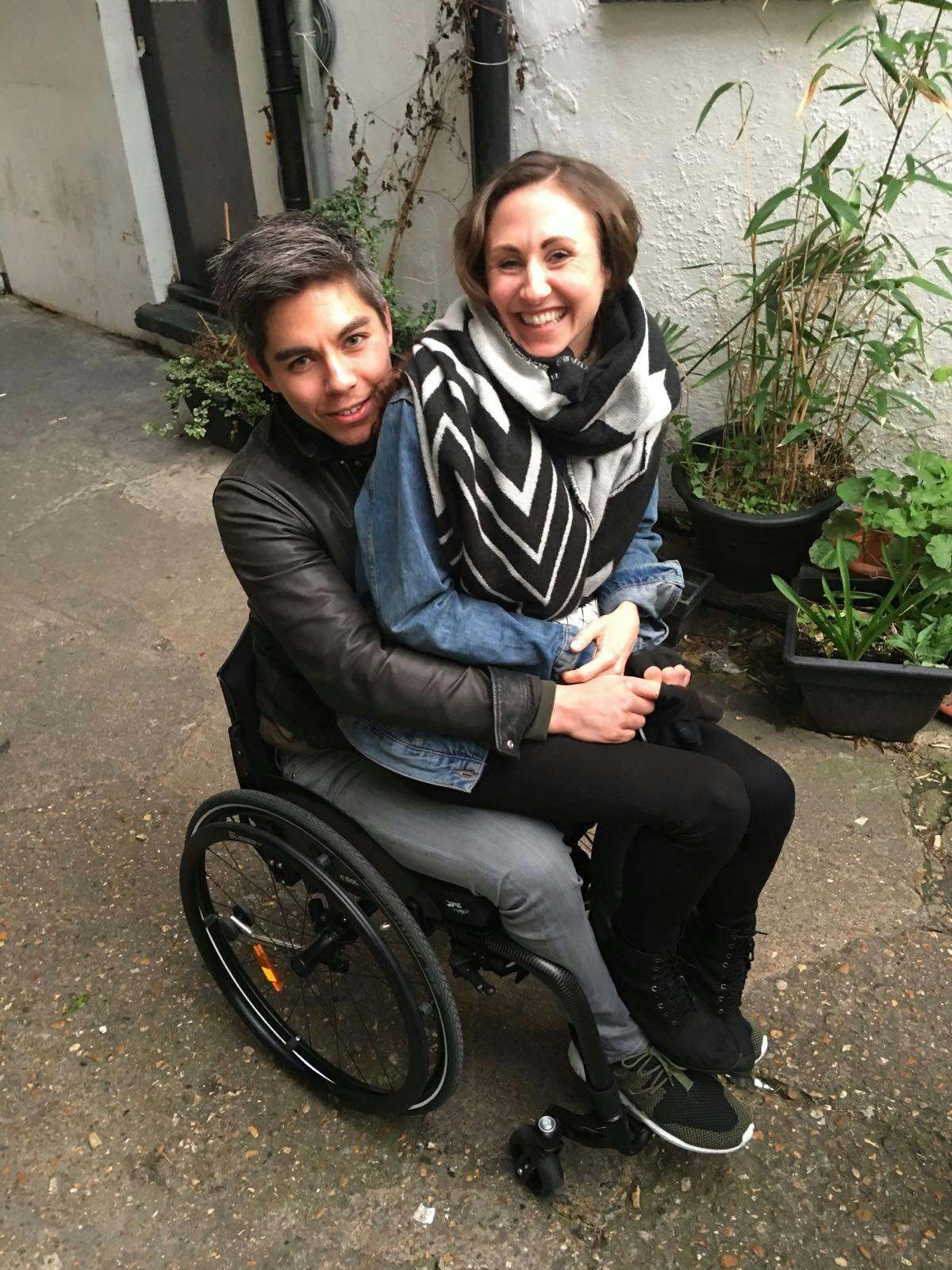
“I’d say he’s my hero, but he’s not really, because together we’re a team”
Now we’re going to continue working hard in our careers; I’m commercial VP at Depop and Hiroki is still running GoCardless. At some point we want to have a family, although that’s a whole other ball game we have to think about. But we’re being hopeful and have our fingers crossed.
The biggest positive to come out of this is the level of connection that Hiroki and I have now; I don’t think we’ve ever been this close and it’s really strengthened us as a couple. Plus we’ve become more appreciative for what we do have in life. Sometimes Hiroki or I can get quite down about things, but then we’ll look at all the other things we do have in life, and remember that we’re still here and we’re still together. I’d say he’s my hero, but he’s not really, because together we’re a team.
All images courtesy of Rachel Swidenbank


